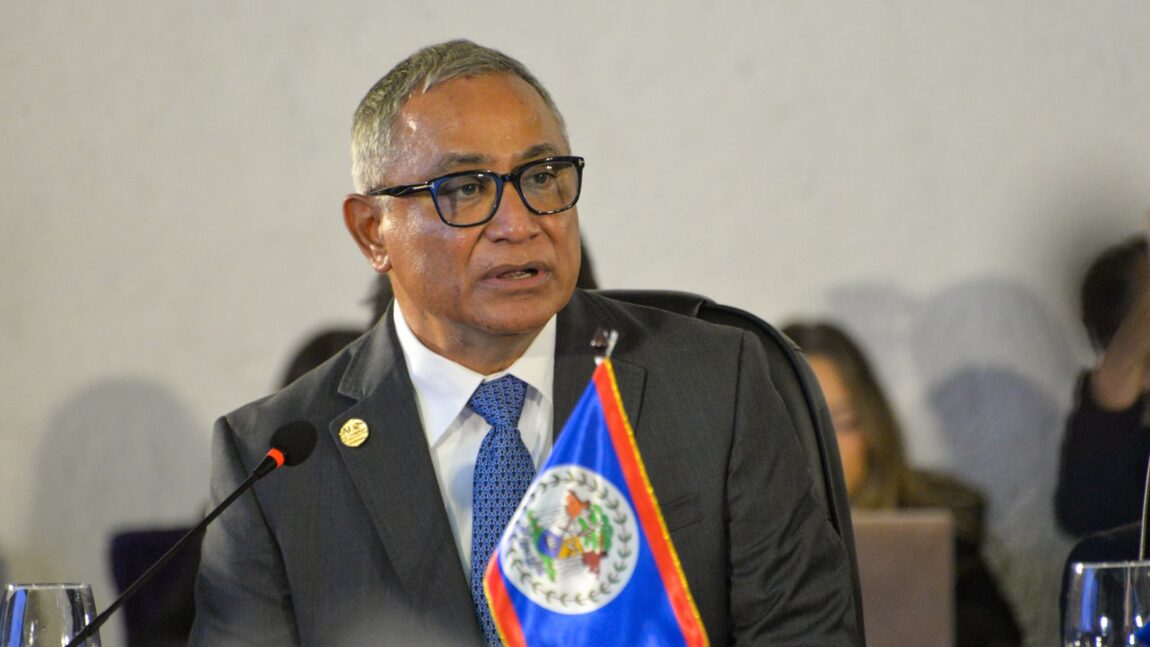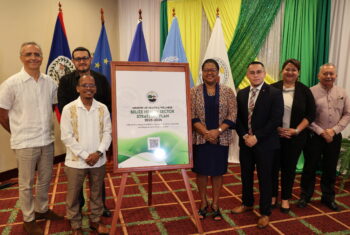Remarks by Prime Minister Hon. John Briceño
9th Summit of Heads of State and/or Government of the Association of Caribbean States (ACS)
Antigua, Guatemala | May 12, 2023
“Innovating integration during a time of multiple crises and transition”
Señor Presidente, y mi amigo, su Excelencia, Doctor Alejandro Giammattei Falla, presidente de la Republica de Guatemala. Gracias por esta calurosa bienvenida a la bella Antigua, como siempre es usted un anfitron excelente.
My fellow ACS Heads of Government and delegation leaders; ACS Secretary General, Mr. Rodolfo Sabonge; Secretary General of CARICOM, Dr. Carla Barnett; and Secretary General of SICA, Mr. Werner Vargas; H.E. Mario Bucaro, Minister of Foreign Affairs of the Republic of Guatemala, and his excellent and hardworking team, members of the diplomatic and consular corps, the staff of the ACS Secretariat and other distinguished colleagues and friends; ladies and gentlemen.
The international system in which we live and operate is facing multiple crises: political, economic, social, and environmental; all being interconnected and unsolvable if approached in isolation. Increased regional coordination and collaboration is an essential tool to address the many challenges.
First, the COVID-19 pandemic battered our economies both in terms of production losses and significant increase in our debt burden. These challenges are now further exacerbated by conflict in Europe. However, we should not lose sight of the fact that even before these more recent global events, the structural challenges hampering development were already entrenched.
In terms of economics, the consequences of the conflict in Eastern Europe have been felt around the world with the rising cost of wheat, fertilizers and oil; meaning that regardless of political views, the cost of living for our people has gone up, along with rising food insecurity.
In consideration of these factors, national governments are hard-pressed to meet domestic demands and, if we are to be fully honest, even more so to meet multilateral demands with our limited resources. This has been amply aired in the extended and candid debate over the last two days on the perilous state of finances of the ACS Secretariat.
The question we should now posit is: how will the ACS remain relevant and viable while addressing these seemingly insurmountable challenges? We would like to suggest that the organization returns to its roots ─ the Caribbean Sea ─ and in the first instance, in addition to our robust political dialogue, focus should be intensified in two thematic areas: the first being the maritime transport challenge, which hinders greater economic interaction and integration amongst ACS states and the second, should be focusing attention on disaster risk management amongst ACS states.
I am confident in saying that the challenges faced by member states are more homogenous than we realize. Addressing these obstacles requires a concerted effort of national governments, international agencies, non-state actors and perhaps, most importantly, the private sector. The ACS must transform itself into a hub for sustained dialogue among the named actors to find actionable solutions in the areas identified.
I will end my remarks on a positive note. The ACS has been in existence for over 29 years and this 9th Summit demonstrates the high-level political commitment of the contracting states, countries, and territories to maintain this forum for “consultation, cooperation and concerted action;” despite the naysayers.
Additionally, it is imperative for the ACS to operate more as a coordinator, especially at the executive level. Finally, since this organization coexists alongside CARICOM and SICA, we need to be skillful in avoiding the trap of duplication and irrelevance and be strategic in identifying our niche and competitive advantage; we are, after all, serving the same people.
I thank you.


